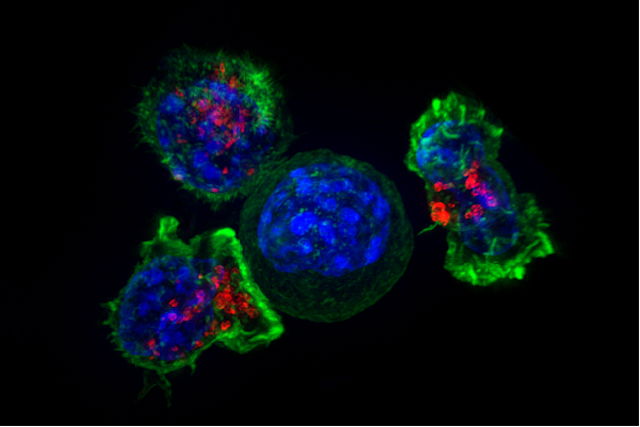
In a new study, Melbourne scientists have discovered a new type of anti-cancer drug that can put cancer cells into a permanent sleep.
The first class of anti-cancer drugs work by putting the cancer cell to sleep – arresting tumor growth and spread without damaging the cells’ DNA
The drug does not have the harmful side-effects caused by conventional cancer therapies.
The team’s previous work shows that genetically depleting KAT6A quadrupled the life expectancy in animal models of blood cancers called lymphoma.
Armed with the knowledge that KAT6A is an important driver of cancer, they began to look for ways of inhibiting the protein to treat cancer in the current study.
In the study, the team examined whether inhibiting KAT6A and KAT6B could be a new approach to treating cancer.
Both are known to play an important role in driving cancer. KAT6A sits at number 12 on the list of genes most commonly amplified in cancers.
The team found that the new class of drugs could provide an exciting alternative for people with cancer.
It has already shown great promise in halting cancer progression in models of blood and liver cancers, as well as in delaying cancer relapse.
Moreover, there is a critical difference between this new class of drugs and standard cancer therapies.
Chemotherapy and radiotherapy work by causing irreversible DNA damage. Cancer cells are unable to repair this damage, and die.
The downside is that the therapies cannot be targeted only to cancer cells, and cause significant damage to healthy cells as well.
This causes well-known short-term side effects, such as nausea, fatigue, hair loss and susceptibility to infection, as well as long-term effects such as infertility and higher risk of other cancers.
But this new drug does not cause DNA damage.
The team believed the drugs might be effective in delaying cancer recurrence.
They said the project was indebted to funding from the Australian Government and proved that public research could be an effective translational vehicle.
The research was led by Associate Professor Tim Thomas and Associate Professor Anne Voss from the Walter and Eliza Hall Institute, Professor Jonathan Baell from the Monash Institute of Pharmaceutical Sciences and Dr. Brendon Monahan from Cancers Therapeutics CRC.
The study is published in the journal Nature.
Copyright © 2018 Knowridge Science Report. All rights reserved.



